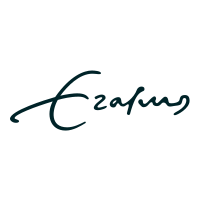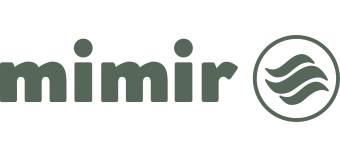
Jobs posted by Erasmus University Rotterdam
Mimir provides the automated job management of jobs on job boards for Erasmus University Rotterdam.
Latest jobs
Lecturer in Finance
An enthusiastic and inspiring lecturer who can help us to positively influence the future of finance through education. The lecturer will be responsible for teaching courses in the programme portfolio of the department, including RSM’s MSc Finance & Investments and BSc programmes, supervising and coaching students with their MSc theses and BSc projects.
RSM’s MSc Finance & Investments programme offers a world-class, one-year general finance curriculum, in which students follow compulsory and elective courses and write a thesis. The lecturer works closely with other members in the department and its Academic Director. As part of their task, the lecturer can also work on projects related to teaching innovation and educational research. The school offers developmental support to lecturers, including teaching qualifications, so that excellent candidates can further develop into Senior Lecturer.
AcademicTransfer
0 applications
0 views
03-03-2026 Erasmus University Rotterdam
Coördinator Erasmus Ambassadors Office
Als Coördinator van het Erasmus Ambassadors Office (EAO) ben je samen met het team verantwoordelijk voor de organisatie en coördinatie van alle kleinschalige voorlichtingsevenementen van de EUR, waaronder meeloopdagen, Studiekeuzeworkshops, schoolbezoeken en klassikale voorlichtingen op middelbare scholen. Je werkt hierbij nauw samen met drie student-assistenten.
Daarnaast ben je binnen deze periode verantwoordelijk voor de organisatie van de Bachelor Open Dag op 3 oktober 2026 en draag je zorg voor de voorbereidende werkzaamheden voor de Master Open Dag op 21 november 2026.
Je speelt een actieve rol in het continu verbeteren van onze voorlichtingsactiviteiten en bent verantwoordelijk voor onder andere:
- Stakeholdermanagement met middelbare scholen en de faculteiten
- Doorvoeren van verbeteringen/veranderingen voorlichtingsevenementen
- Werving van nieuwe Ambassadors
- Het in samenwerking verzorgen van de Ambassadorstraining
Je werkt nauw samen met collega’s binnen Marketing & Communicatie, medewerkers van faculteiten en diensten en student-assistenten. Samen zorgen jullie voor kwalitatief sterke evenementen, monitor je resultaten en draag je zorg voor evaluatie en optimalisatie. Je bent daarnaast verantwoordelijk voor:
- De voorbereiding, organisatie en uitvoer van diverse voorlichtingsevenementen
- Het opstellen en bijhouden van projectplannen, draaiboeken en budgetten
- Het meten en analyseren van resultaten aan de hand van KPI’s om toekomstige activiteiten te optimaliseren
- De coördinatie van communicatiemiddelen rondom evenementen, zoals webpagina’s (CMS), e-mailflows (CRM), creatieve concepten, fotografie en video, in samenwerking met collega’s
- Het aansturen van 3 student-assistenten die je volledig ondersteunen met een hoge mate van zelfstandigheid bij de organisatie van de kleine voorlichtingsevents.
- Het uitvoeren van de projectadministratie.
AcademicTransfer
0 applications
0 views
03-03-2026 Erasmus University Rotterdam
Onderzoeksassistent "Angst op school"
In deze rol zal je als onderzoeksassistent aan de slag gaan binnen het project “Angst op school”. Dit project bestaat uit twee studies:
In studie 1 zullen we onderzoeken hoe verschillende soorten angst op school (bijv. sociale angst, prestatiedruk, faalangst) met elkaar samenhangen in een netwerk-analyse. Vervolgens zullen we onderzoeken hoe individuele factoren, ouders en leeftijdsgenoten angst op school en de relatie met schooluitkomsten beïnvloeden. In deze studie zullen we werken met bestaande data.
In studie 2 zullen we onderzoeken hoe leeftijdsgenoten, ouders en leraren kunnen helpen bij angst op school. Eerst zullen we een overzicht maken van verschillende manieren waarop leeftijdsgenoten, ouders en leraren kunnen helpen bij angst op school – in samenwerking met kinderen, adolescenten, leraren en therapeuten. Dit zullen we vervolgens in een grotere sample onderzoeken zodat we advies kunnen geven over angst op school. We zullen dit onderzoeken met leerlingen van zowel de basisschool als de middelbare school.
Jij zal als onderzoeksassistent deze twee studies uitvoeren. De taken die hierbij komen kijken zijn onder andere: contact onderhouden met scholen, brainstorms organiseren met leerlingen, dataverzameling coördineren, data analyseren en presenteren, meeschrijven aan wetenschappelijke artikelen en ontwikkelen van lessen/workshops/webinars over de resultaten van ons onderzoek voor kinderen, jongeren, leraren en ouders.
AcademicTransfer
3 applications
0 views
02-03-2026 Erasmus University Rotterdam
Beleidsmedewerker AI & Onderwijs
Als medior/ senior beleidsmedewerker Onderwijs –AI draag je met een grote mate van zelfstandigheid bij aan het strategisch AI-beleid van de universiteit. Je onderhoudt contact met interne en externe belanghebbenden en volgt actief de externe ontwikkelingen op het vlak van AI. Je weet belangrijke (inter)nationale en maatschappelijke ontwikkelingen te vertalen naar adviezen die passen bij de Erasmus Universiteit Rotterdam (EUR) en doet dit in nauwe samenwerking met bestuurders, collega’s, de faculteiten en centrale diensten.
Daarnaast weet je goed in te spelen op de behoeftes die leven binnen de universiteit en vertaal je actuele ontwikkelingen in het hoger onderwijs en de samenleving naar AI-beleid en acties in samenwerking met alle faculteiten en relevante actoren.
In deze rol werk je ook nauw samen met het programmateam van AI@EUR (een strategisch vierjarig programma gericht op AI in het onderwijs, onderzoek en bedrijfsvoering).
Wat neem je mee?
Je hebt een goede kennis van of sterke affiniteit met digitale en onderwijskundige ontwikkelingen in het hoger onderwijs – met name in relatie tot generatieve AI- en je bent in staat om verbindend te werk te gaan binnen en buiten de universiteit. Je vindt het uitdagend om draagvlak te organiseren en om in co-creatie met medewerkers, studenten en met externe partners invulling te geven aan beleidsambities. Je bent werkzaam op een unieke plek, waarin je je beweegt op zowel universitair, regionaal en landelijk niveau. Je praat mee over een grote diversiteit aan onderwerpen en hebt een zichtbare rol als het gaat om strategisch onderwijs binnen de universiteit.
Je voornaamste taken zijn:
- Het ontwikkelen van instellingsbreed beleid op diverse deelgebieden van AI in het onderwijs (te denken valt aan instellingsbrede toetskaders, omgang met GenAI in het Ondewijs, digitale geletterdheid voor staf en studenten);
- Strategisch adviseren van het bestuur en (vice-)decanen op het gebied van AI in het onderwijs en digitale technologie;
- Het volgen en vertalen van (inter)nationale en maatschappelijke ontwikkelingen in strategie en beleid op het gebied van AI (van buiten naar binnen gericht);
- Het begeleiden van het besluitvormingsproces en het monitoren van de implementatie van vastgestelde beleidsmaatregelen rondom AI. Deze taken vormen tezamen circa 0,6 fte van de functie.
- Voor de overige 0,4 fte houd je je bezig met coördinatie van facultaire AI-projecten in het kader van de BAO (Bestuursakkoord Onderwijs). Je bent o.a. verantwoordelijk voor:
- De begeleiding van de ontwikkelfase en monitoring van facultaire AI-projecten die – met behulp van BAO-middelen- ontwikkeld worden in het kader van het versterken van de onderwijskwaliteit;
- Het signaleren van AI-ondersteuningsbehoeften rondom onderwijs van de faculteiten;
- Het faciliteren van de koppeling van expertise en deskundigheid vanuit het programma AI@EUR/ andere diensten met de facultaire AI-onderwijsprojecten die zijn opgezet in het kader van de BAO;
- Het ondersteunen van projectcollega's met de vertaling van beleid naar praktische instrumenten (handreikingen, templates, procesafspraken).
Je werkt nauw samen met de beleidsafdeling Onderwijs van Academische Zaken en de programmamanager AI@EUR.
AcademicTransfer
1 application
0 views
27-02-2026 Erasmus University Rotterdam
Jurist (0,8 - 1,0 fte)
Onderzoekers krijgen regelmatig te maken met juridische vraagstukken. Als Jurist bij ERS ondersteun je onderzoekers op een heldere en praktische manier en werk je nauw samen met collega’s op het gebied van onder andere subsidies, kennisvalorisatie en data/privacy.
Je stelt overeenkomsten op tussen de EUR en externe partijen, zoals subsidieverstrekkers, onderzoekspartners en opdrachtgevers, en beoordeelt deze. Daarbij behartig je de belangen van de universiteit en de onderzoekers, onder meer op het gebied van wetenschappelijke integriteit, intellectueel eigendom en publicatievrijheid.
Jouw belangrijkste werkzaamheden zijn:
- Opstellen, beoordelen en uitonderhandelen van overeenkomsten met betrekking tot onderzoek
- Geven van helder juridisch advies en praktische ondersteuning aan onderzoekers
- Identificeren van juridische risico’s en zoeken naar pragmatische oplossingen binnen geldende wet- en regelgeving
- Bijdragen aan de ontwikkeling van kennis, templates en richtlijnen en het stimuleren van compliance
- Vergroten van de zichtbaarheid van ERS Legal binnen de EUR
- Bijdragen aan het verbeteren van de interne procedures en de efficiëntie van het team
Je rapporteert aan het Hoofd Research Management van ERS.
AcademicTransfer
2 applications
0 views
27-02-2026 Erasmus University Rotterdam


